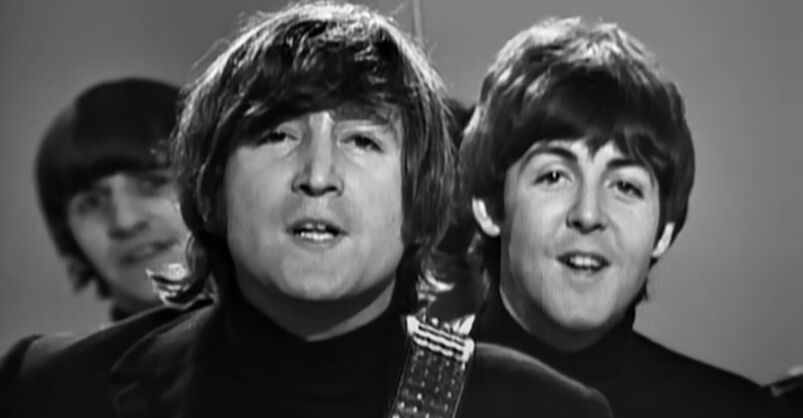
No band has prompted as many books or documentaries as The Beatles. The Liverpudlian quartet soundtracked the swinging 1960s and redefined popular music in the process. Their output has been endlessly pored over, analyzed, remastered, and repackaged over and over (and over) again.
However, this over-abundance of analysis doesn’t mean they remain free of mystery.
“You’ve Got To Hide Your Love Away”, from 1965, is a track open to a variety of interpretations.
Your dose of fabulosi-TEA
Subscribe to our newsletter for your front-row seat to all things entertainment with a sprinkle of everything else queer.
John Lennon wrote the song but it was credited—like all the band’s songs—to Lennon-McCartney. He decided they needed an additional track for the Help album.
Lennon subsequently said that “You’ve Got To….” was his shameless attempt to make a song that sounded like Bob Dylan.
“That’s me in my Dylan period again. I am like a chameleon, influenced by whatever is going on. If Elvis can do it, I can do it. If the Everly Brothers can do it, me and Paul can. Same with Dylan,” said Lennon.
The lyrics are sparse.
“Everywhere people stare, each and every day, I can see them laugh at me, And I hear them say,” leads into the chorus.
“Hey, you’ve got to hide your love away.”
Tom Robinson
Lennon resisted ever explaining what the lyrics were about. As he was murdered in 1980, we’ll probably never know for sure.
The lyrics include female pronouns (“If she’s gone, I can’t go on, feeling two-foot small”), so Lennon may have had a woman in mind. He was famously expected to keep quiet about his marriage to his first wife, Cynthia, during the early years of the Beatles’ success.
However, the British singer Tom Robinson (“Sing If You’re Glad To Be Gay”), later gave a different take.
“My generation had grown up as teenagers in the ’60s with pop music as a defining characteristic of who we were. Yet for those of us who’d grown up attracted to the same sex, the lyrics always described someone else’s situation, never our own,” recalled Robinson.
“The nearest thing I heard to the way I was feeling was John Lennon’s lyric to ‘You’ve Got To Hide Your Love Away’ – which can only have been about Brian Epstein.”
Gay love in 1960s England
In the early 1960s, homosexuality remained not only taboo in the UK but also illegal. It wasn’t decriminalized in England until 1968. Despite this, gay men flourished within the fledgling British rock scene.
Manager Larry Parnes enjoyed huge success in the late 1950s, followed by the likes of producer Joe Meek (“Telstar”), and, of course, Epstein.
Heralding from a middle-class, Jewish family, Epstein made a name for himself in Liverpool by running the city’s best-known and hippest record store. He first encountered the Beatles in 1961 and immediately saw their potential. He was instrumental in refining their image and persuading them to wear suits.
Despite having no experience in artist management before the Beatles, he oversaw their rise to global stardom. The group trusted him and remained fiercely loyal.
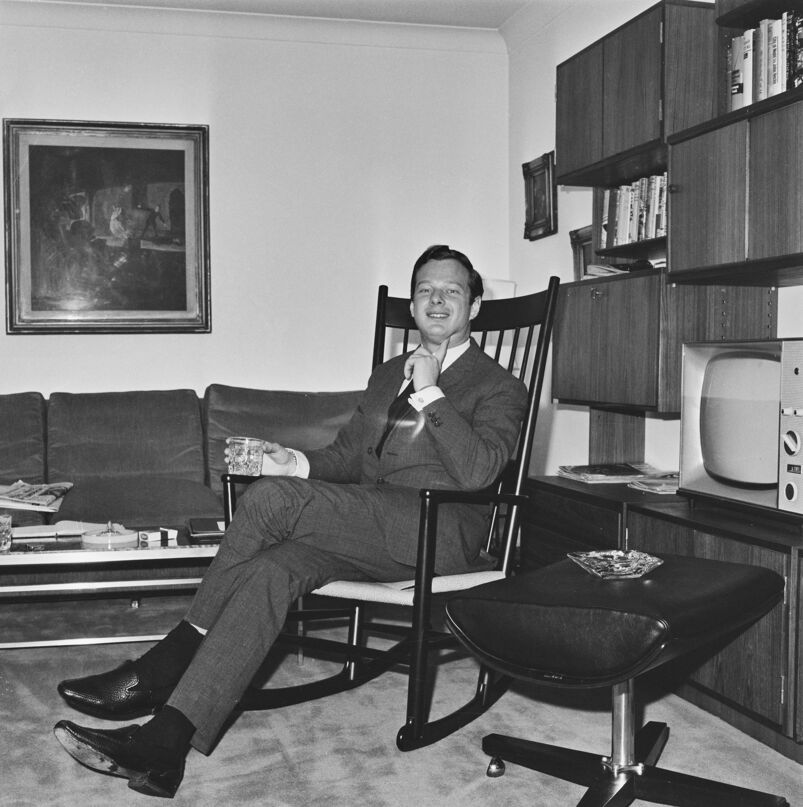
The Spanish vacation
Epstein and Lennon were close. They famously went on a vacation to Spain together at the end of April 1963. Lennon’s wife, Cynthia, had had their son, Julian, a few weeks earlier, and Lennon later admitted he was a “bastard” for not canceling the trip to help look after his first child.
“I was on holiday with Brian Epstein in Spain, where the rumors went around that he and I were having a love affair,” Lennon later said. “Well, it was almost a love affair, but not quite. It was never consummated. But it was a pretty intense relationship.
“It was my first experience with a homosexual that I was conscious was homosexual. He had admitted it to me. We had this holiday together because Cyn was pregnant, and I went to Spain and there were lots of funny stories. We used to sit in a cafe in Torremolinos looking at all the boys and I’d say, ‘Do you like that one, do you like this one?’ I was rather enjoying the experience, thinking like a writer all the time: I am experiencing this, you know.”
“I like playing a bit faggy”
In another interview, Lennon said, “I watched Brian picking up the boys. I like playing a bit faggy, all that. It was enjoyable, but there were big rumors in Liverpool, it was terrible. Very embarrassing.”
The vacation was fictionalized in the 1991 movie, The Hours And Times (available to stream).
Paul McCartney later suggested the reason Lennon agreed to the trip was because he wanted Epstein to realize he was the person to deal with in the band and wanted to exert his authority.
“John was a smart cookie. Brian was gay, and John saw his opportunity to impress upon Mr. Epstein who was the boss of the group. I think that’s why he went on holiday with Brian. And good luck to him, too – he was that kind of guy; he wanted Brian to know whom he should listen to.”
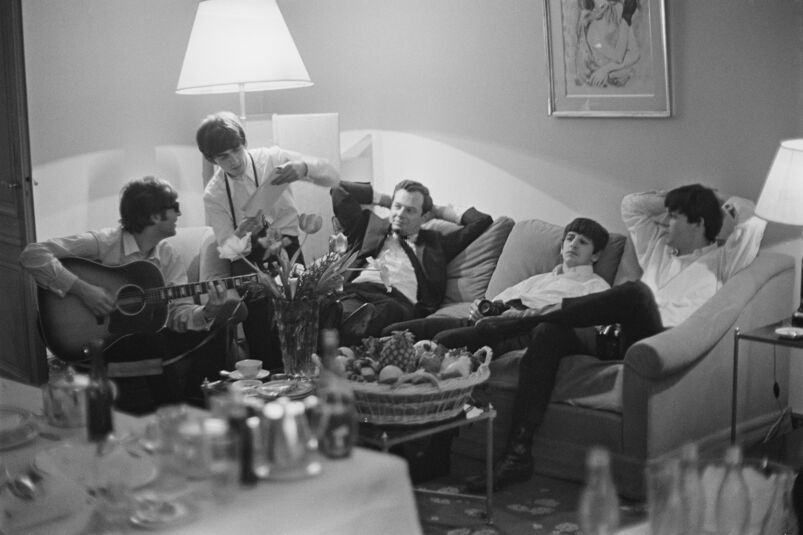
Lennon reacts angrily to gay rumors
The trip raised eyebrows among those close to the group.
In June 1963, at Paul McCartney’s birthday party, a Liverpool disc jockey named Bob Wooler ribbed Lennon about the trip.
“Come on John, what really happened with you and Brian? Everybody knows anyway, so tell us,” he reportedly said.
Lennon, drunk, launched a ferocious and violent attack on Wooler. He beat him and repeatedly kicked him when he lay on the floor. The DJ was rushed to hospital by Epstein, where he received treatment for broken ribs.
The incident was covered in British newspaper The Daily Mirror. Wooler declined to press charges and Lennon paid him around £200 in compensation (around $6,500 in today’s money). In 1980, shortly before his death, Lennon talked about the gay rumors that set him off.
“You know, when you’re 21, you want to be a man. If someone said it now, I wouldn’t give a sh*t.”
Pete Shotton was a former bandmate of Lennon’s from his pre-Beatles days with The Quarrymen. According to Shotton, in his memoir ‘John Lennon: In My Life’, something did take place between Lennon and Epstein in Spain. He said he’d asked Lennon directly.
The Beatle, according to Shotton, said he’d allowed Epstein to “toss” him off.
“‘So f*cking what! The poor bastard. He’s having a f*cking hard enough time anyway’,” Shotton recalls Lennon saying. “‘So what harm did it do, then, Pete, for f*ck’s sake?’ John asked rhetorically. ‘No harm at all. The poor f*cking bastard, he can’t help the way he is.”
In 2015, in an interview with The Daily Beast, Yoko Ono was asked if she knew whether Lennon had ever had sex with a man.
“No, I don’t think so,” she replied. “I think he had a desire to, but I think he was too inhibited.”
The Silkie
What’s without doubt is that Lennon and Epstein enjoyed a very close bond. The singer and songwriter was also sympathetic to Epstein having to remain in the closet. The manager had already been badly queer-bashed himself whilst out cruising. He could not possibly be publicly out at the time.
The song featured on the album, Help, and its accompanying movie. However, it was not released as a single. Epstein must have realized it had potential to be a hit and another band he signed, The Silkie, recorded a cover version a few months after The Beatles. Their version peaked at number ten on the US Billboard Hot 100.
It’s not hard to imagine Epstein, like Robinson, being struck by the words of “You’ve Got To Hide Your Love Away”. However, again, we’ll never know his thoughts on it. Aged 32, he died from an accidental overdose of alcohol and barbiturates in 1967.
Some believe Epstein’s passing marked the moment the Beatles began to fragment, ultimately leading to their split in 1970.

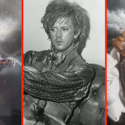

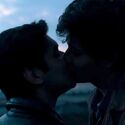


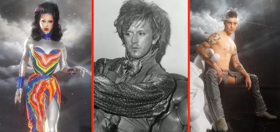


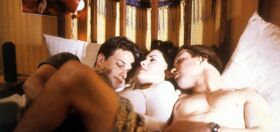









crazyoldman
My first crush was George Harrison way back in the 60’s. I loved this song.
JDT
One of my favorite Beatles songs, fantastic piece.